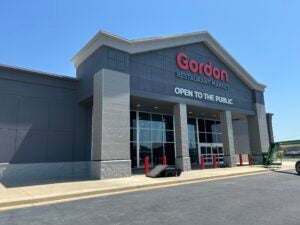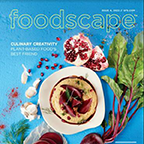The Centers for Medicare & Medicaid Services (CMS) recently released the Federal Register – Reform of Requirements for Long-Term Care Facilities Final Rule. There will be three phases of this rule rolling out through 2019. The major themes to the rule include person-centered care, staff training (specifically in regards to dementia and preventing elder abuse), care planning, discharge planning, infection control and residents’ rights.
Phase one, which went into effect November 28, 2016, includes many areas relevant to food and nutrition services. The State Operations Manual Appendix PP and F-tags (federal nursing home regulations) already have been updated with the new language for this first phase. Note that the F-tag number system will remain the same for this initial phase of the rule.
To help you craft the appropriate policies and procedures to comply with this rule, here is a summary of the changes most likely to impact your food and nutrition services department.
F-tags directly related to foodservice
F284 The interdisciplinary team must begin discharge planning on admission, including assessment of the resident’s goals.
F360 This section has been renamed from “Dietary Services” to “Food and Nutrition Services.” In addition to the name change, this section also has been updated to focus on meeting the preferences of each resident.
F361 Explicit qualifications and timelines are listed for the Director of Food and Nutrition Services if a dietitian or “other clinically qualified nutrition professional” is not employed full-time. State requirements for food service or dietary managers must be followed. See the ANFP resources below for further information.
F362 A member of the food and nutrition services staff must participate on the interdisciplinary team. The words “safely and effectively” were added preceding “carry out the functions of the food and nutrition service.” (Also reference F280)
F363 Focusing on menus and nutritional adequacy, updates here:
- Clarify that established national guidelines shall be used to assure menus meet nutritional needs. The previous version stated that the menus must be in accordance with the RDA of Food and Nutrition Board of the National Research Council, National Academy of Sciences.
- Require that you take reasonable efforts to assure menus meet residents’ religious, cultural and ethnic needs. It also specifies that input must be received from residents.
- Mandate that menus should be updated periodically and reviewed by approved staff.
- Highlight the resident’s right to make personal choices.
F364 This section was expanded to include meeting hydration needs and preferences regarding beverages. The language includes a new mention of “a safe and appetizing temperature” for food and drink.
F366 Explicit requirements are listed for accommodating allergies, intolerance and preferences to food and drink. Options for those who request a different meal choice must be “appealing,” with that keyword added. This section also stresses beverages, including water, to maintain hydration.
F367 The attending physician may delegate the task of prescribing a resident’s diet to a registered or licensed dietitian to the extent allowed by state law, and must be under supervision of the physician. (Also see F390)
F368 The main change highlighted here is that alternative meals/snacks must be provided to residents who request to eat outside of traditional/scheduled times. These options should meet preferences and be consistent with the care plan.
F369 Appropriate assistance should be provided to those using assistive devices at meals and snacks.
F371 This section clarifies three key points:
- Foods from local producers must meet applicable state/local rules.
- Produce from own gardens must be handled safely.
- Residents are able to have foods from outside. A policy is required regarding the use and storage of these foods.
F373 The interdisciplinary team is responsible for assessing the need for a feeding assistant, and the rationale for use of a feeding assistant program should be reflected in the care plan.
F520 A quality assurance and performance improvement (QAPI) program must be in place by phase 3. Discussion in this section includes whether the community has trained staff (including food and nutrition services) in how to communicate with and address behaviors of residents with dementia. (See F495, F497, F498)
Additional Resources
Federal Register “Reform of Requirements for Long-Term Care Facilities“
Centers for Medicare and Medicaid Services “Revisions to State Operations Manual (SOM), Appendix PP-Revised Regulations and Tags”
CMS Surveyor Training “Phase 1 Implementation of New Nursing Home Regulations for Providers”
Academy of Nutrition and Dietetics “Practice Tips: Reform Requirements for the RDN in Long Term Care Facilities“




























